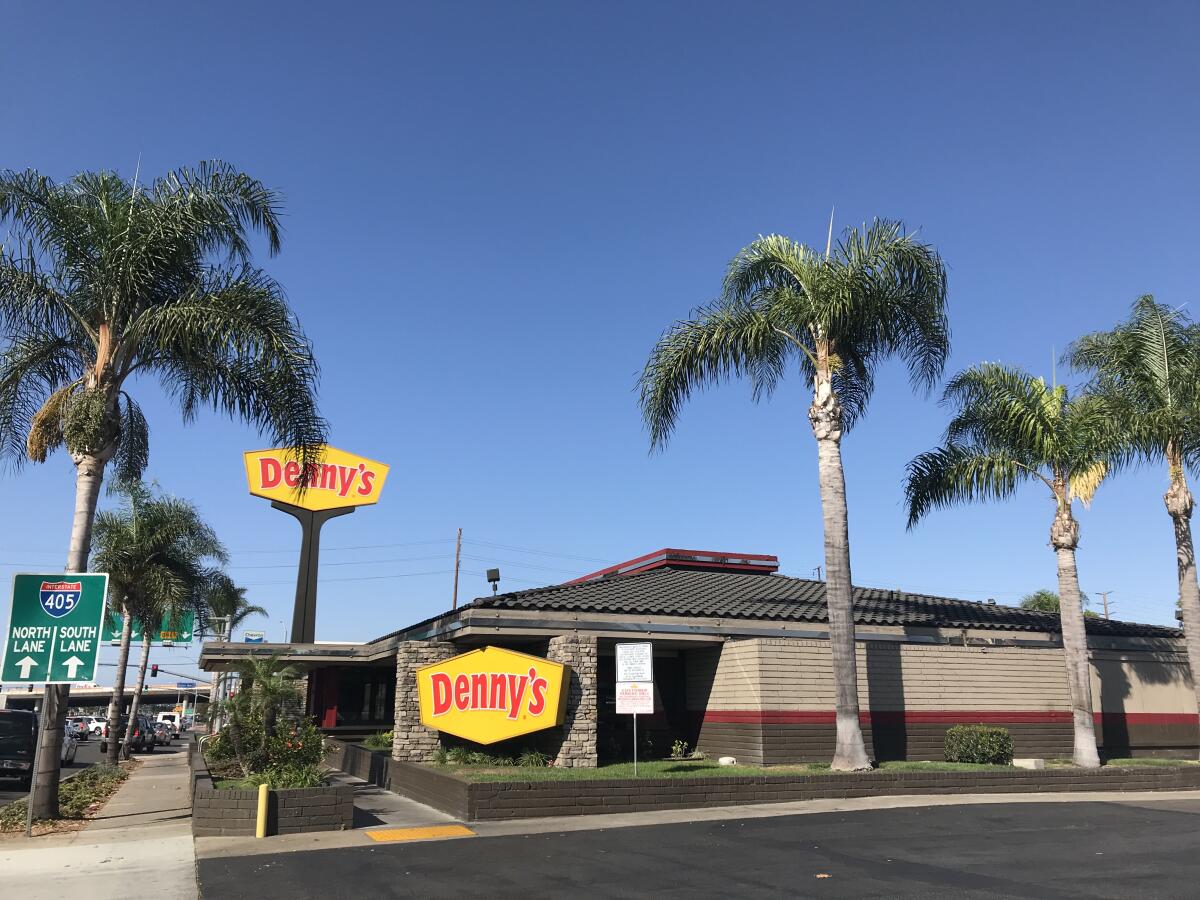Costa Mesa Denny’s gets heat over sewage spills

- Share via
Got grease?
According to the Costa Mesa Sanitary District, the local Denny’s does.
The sanitary district board of directors, which oversees trash and sewer services in Costa Mesa and parts of Newport Beach, held a special hearing Monday morning to address sewer overflows from the Denny’s restaurant at 3170 Harbor Blvd. in Costa Mesa.
The board ordered Denny’s to flush out its system once a month with a powerful hydro jet. If a significant overflow happens again, the board said, it would require Denny’s to install a grease trap.
In a 3-2 vote, with board Vice President Robert Ooten and member Michael Scheafer dissenting, the board eased back from staff’s recommendations and gave the restaurant one last chance to clean up its act.
“We’re trying to be business-friendly,” board member Arthur Perry said.
According to district staff, Denny’s has had nine sanitary sewer overflows, in which untreated sewage spills onto the street, since 1997. The most recent were in May and January. No other restaurant in the district has experienced so many sewer overflows, district General Manager Scott Carroll said.
The sanitary district said grease clogged a pipe and obstructed sewage flow, leading to the spills. District staff tried to prevent overflows at Denny’s several times in the past 22 years, at times requiring that the restaurant video-record its pipe innards and increase its hydro jet cleanings from every three months to every two.
After the January incident, the district notified Denny’s that another sewer overflow would warrant requiring an interceptor to catch the grease before it enters the wastewater system.
“It comes to a point when you say, ‘OK, enough is enough.’ … Sewer spills are a threat to public safety,” Carroll said.
Carroll played a video showing white gunk caked on parts of the inside of a lateral, the pipe that connects the restaurant’s plumbing to the city’s sewer main.
Medhat Bechay, owner of Denny’s Costa Mesa location, said the issue isn’t grease. He blamed the overflows on patrons and homeless people throwing excessive toilet paper, hand towels and other objects down the toilet.
“Usually that’s what happens — somebody washing themselves, cleaning themselves, taking a shower, really, in the restaurant,” Bechay said.
Board members questioned Bechay’s business practices, saying he should make the restrooms available only to paying customers. He said the restrooms are limited to customers but cannot be patrolled constantly, since the restaurant is open around the clock.
The only grease that enters the system would be from washing the floor, he said.
Joe Jenkins, who oversees the district’s food oil and grease program for the company EEC Environmental, pointed out that any food waste or grease from pots, pans, plates and utensils also would likely flow through the drain into the lateral.
Installing a nearly $50,000 grease interceptor — plus thousands of dollars in additional costs to temporarily close the restaurant — “really doesn’t make sense … as a business,” Bechay said. Instead, the restaurant will pay about $475 for the monthly hydro jet treatments.
“We take care about the public,” Bechay said. “That’s something very important to us.”
All the latest on Orange County from Orange County.
Get our free TimesOC newsletter.
You may occasionally receive promotional content from the Daily Pilot.




